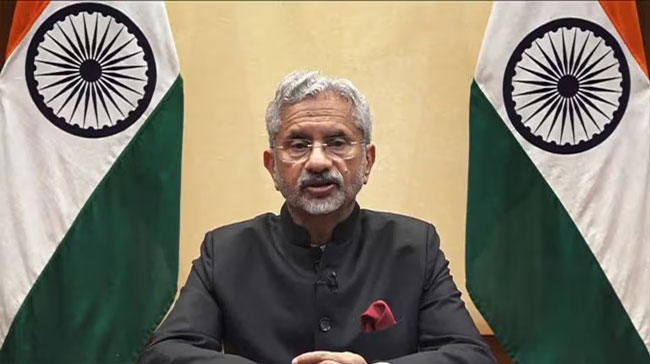Desk: External Affairs Minister S. Jaishankar welcomed the withdrawal of Indian and Chinese troops along the Line of Actual Control (LAC), stating that this step has opened up new avenues for improving bilateral relations. Speaking with the Indian community in Brisbane, Australia, Jaishankar also addressed the ongoing brutal wars in Europe and West Asia, emphasizing India’s diplomatic efforts to mitigate the Ukraine-Russia and Israel-Hamas conflicts. He urged other nations to join this endeavor, as the wars have exacerbated crises and suffering in 125 countries around the globe.
Jaishankar expressed concern over the widespread repercussions of the Russia-Ukraine and Israel-Hamas conflicts, highlighting that they have raised alarms across the international community. He noted that India is engaged in various initiatives to end these wars and stressed the need for intensified diplomatic efforts to resolve the Ukraine conflict, which has amplified crises for many nations. Prime Minister Narendra Modi is continuously striving for a peaceful resolution, having visited Russia in July and Ukraine in August.
Additionally, PM Modi met with Ukrainian President Volodymyr Zelensky in June and again in September, and held discussions with Russian President Vladimir Putin in Kazan in October. During these meetings, Modi called for an end to the fighting, emphasizing that the situation requires diplomatic engagement, which India is actively pursuing.
A Call for Global Participation
Jaishankar further urged that the rest of the world should also step forward to help halt the wars, stating, “They should not stand idly by, saying that it cannot be done. We call upon other nations to unite in this effort.” He acknowledged that there was initial skepticism from other countries regarding India’s capabilities, but a sense of understanding has since developed, particularly among Western nations.
Comments on the Israel-Hamas Conflict
Regarding the Israel-Hamas situation, Jaishankar noted that the focus is currently on efforts to cease hostilities. He identified a significant challenge as the lack of direct communication between Iran and Israel. If they can bridge this gap, India could play a pivotal role in the peace process.
Advancements on the LAC
Jaishankar remarked that the withdrawal of Chinese troops from the LAC signifies progress in mutual relations, stating, “Now that the troops have retreated, we need to see what direction we take next. However, we believe this retreat is a welcome step, opening up possibilities for further actions.” He pointed out that the withdrawal addresses only one aspect of the ongoing stalemate, with other issues still needing resolution.
He explained, “The truth is that a large number of Chinese soldiers were deployed at the LAC, who were not present there before 2020, prompting our counter-deployment. During the standoff, India and China had stationed over 50,000 troops in the LAC’s Ladakh sector, bringing bilateral relations to their lowest point since the 1962 border war. India has also taken several stringent measures against China, including banning Chinese apps and restricting visas for Chinese nationals and investments from the Chinese side.”




